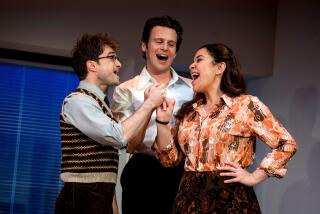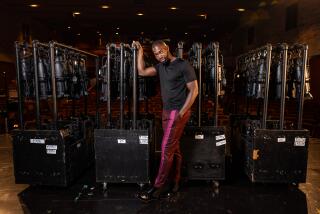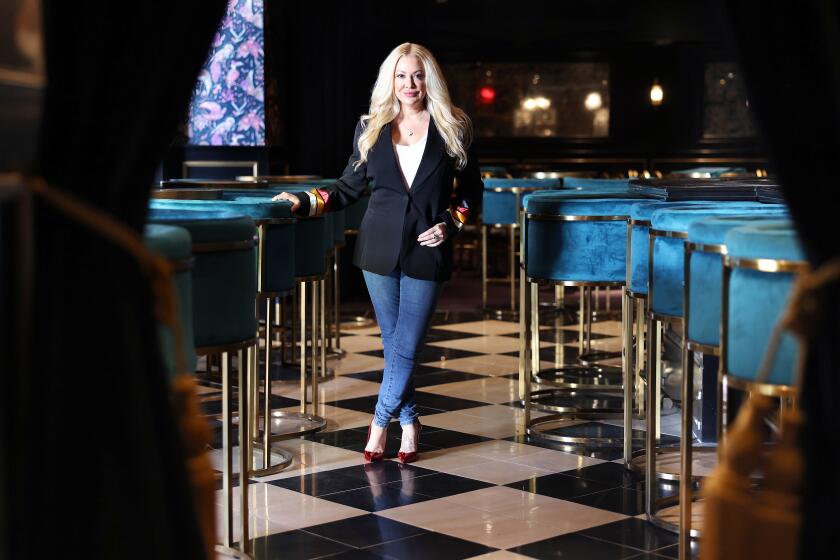JOHN KOLVENBACH
New Yorker Kolvenbach, 42, creates what he calls “personal dramas that are some combination of funny and sad,” including “Love Song.” The festival is presenting a reading of his quirky romance “Goldfish” at 10:30 a.m. Saturday.
“USUALLY, I don’t develop plays by using anyone else’s process. By the time I get to the theater, the play is reasonably complete. I write, then I do a hundred drafts, then I do readings in my house with actors I know. I rewrite, we do another reading, I rewrite, then I usually do a reading for an invited audience, rewrite, then do a reading for an audience of about 30 people. Then I decide whether it’s garbage or something that should be seen. Part of this comes from not wanting to show anyone anything I’d be embarrassed by. Also, I feel like before you want to look to somebody else for an idea, you want to work from the original source.
And yet I find the best way to judge a play is to listen to it with an audience. To sit in the back and just hear it. Billy Wilder said that, individually, the audience is a dimwit, but collectively, they are a genius.
When I write, I start from character. I do a ton of monologue that never ends up in the play, especially while I’m trying to find the voice of the play and make sure the characters are individuals. I’m reasonably conscious of plot. I usually have a fairly detailed outline about how the scenes play out, but by the time I get into the second act, my outline is no longer totally relevant so I throw it away. I try to load up, almost like you have a jet pack and you fill the jet pack with as much fuel as you can. Then you go, hoping you don’t go careening into a building.
‘Goldfish’ is kind of a delicate play, so a misplaced syllable would be a disaster. There’s a lot of unsaid stuff in it. Weirdly, it is more difficult to write a play with fewer words. It is hugely actor-dependent and director-dependent. We did an earlier reading at South Coast and we learned a crucial thing, which was that the end didn’t quite work. It was insufficiently bold, insufficiently dramatic. It didn’t allow the audience a cathartic experience. That was very helpful.
Anytime you go from a very private enterprise to a very public enterprise it’s a kind of tearing away. People with good development are very sweet and careful not to be too rough with you. Truth is, it’s going to be a rough process at one time or another.”
More to Read
The biggest entertainment stories
Get our big stories about Hollywood, film, television, music, arts, culture and more right in your inbox as soon as they publish.
You may occasionally receive promotional content from the Los Angeles Times.






